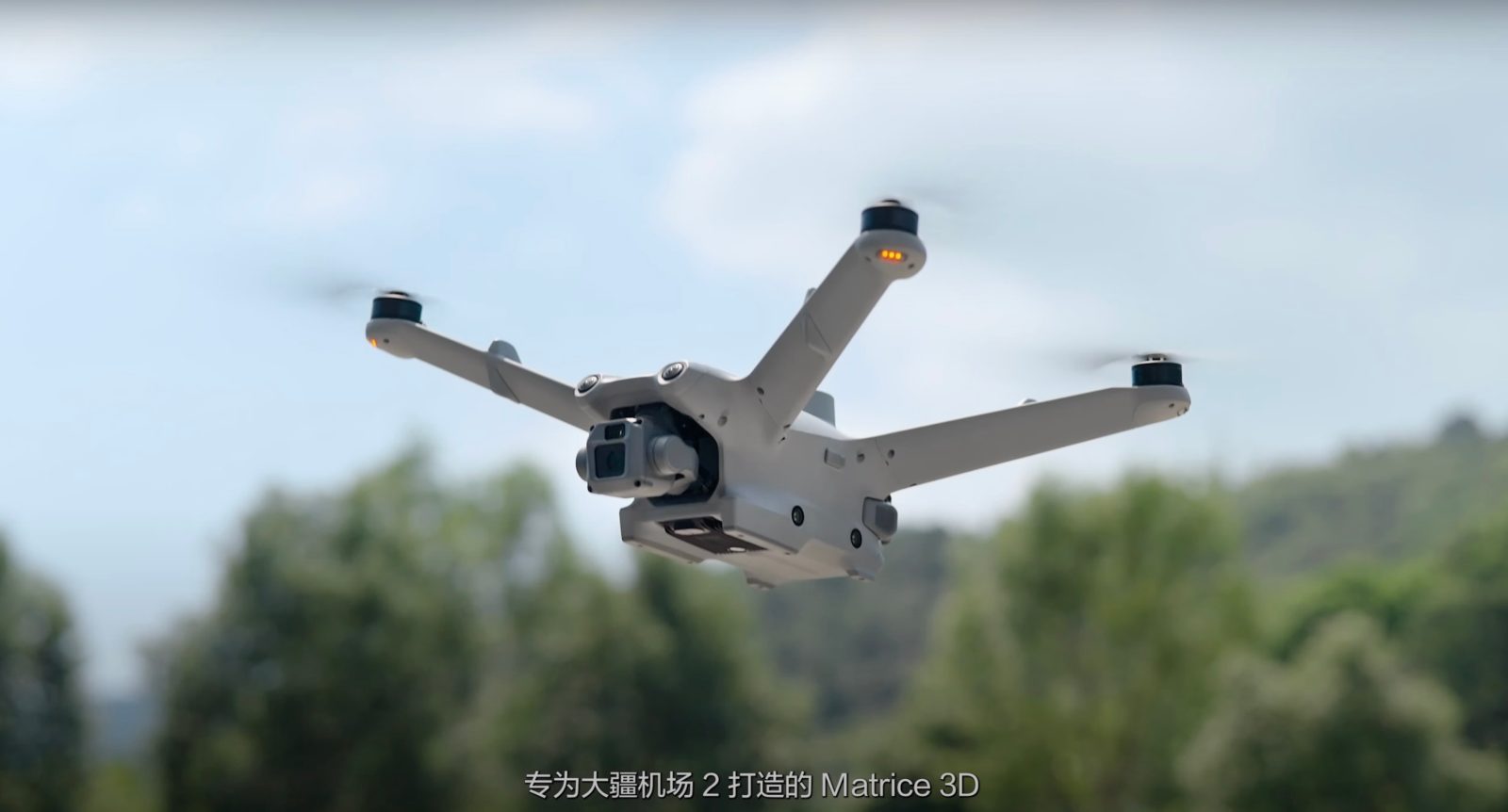
A funny thing happened the on the way to the conclusion of an otherwise convincing editorial about the self-defeating consequences of the recently passed anti-China American Security Drone Act of 2023 (ASDA): The author associated himself with a lobby supported by same DJI targeted by the law’s federal blacklisting, thus undermining the effectiveness of what had been a very compelling argument.
The article appeared in the January 12 edition of The Hill, written by Vic Moss, a professional photographer, videographer and certified UAV pilot. In it, Moss takes issue with the ASDA, which was signed into law last month as part of the National Defense Authorization Act. Among its consequences is a ban on federal agencies using drones made in China – mainly DJI and Autel. The interdiction is justified by what – even at this very late date – are unsubstantiated accusations the craft leak user data to authorities in Beijing. Moss argues the rush to ground effectively performing government-owned DJI drones due their national origin is unfair and counter-productive, especially in absence of proof they pose any problems.
And it may be just the start, to boot.
Another bill still wending around Congress seeks to go even farther by forbidding Chinese drones in the US to use ubiquitous public communications infrastructure all UAVs rely on to operate. Though Moss doesn’t specifically refer to that measure, he evokes its risks. The spreading blacklisting movement in Washington, he warns, threatens to restrict the resources and operations of the “entire US drone market, because ASDA will spill over into non-federal” spheres of daily deployment for countless users. Particularly, overwhelmingly those of DJI craft
Moss’s piece is a reply to a December editorial in The Hill by former retired US Navy Rear Admiral Mark Montgomery. He now heads a research unit in the Foundation for Defense of Democracies, which is described as both a think tank and a registered lobby. That latter activity becomes evident in his oped piece.
In it, Montgomery repeats the data leaking allegations of DJI blacklisting advocates – like them providing no evidence to substantiate those claims. He goes further by painting a nightmarish picture of the US being brought to a halt by Beijing-orchestrated cyber-attacks using information collected by China-made craft during official or enterprise use. Banning Chinese UAVs, he therefore argues, is a matter of vital national security, and possibly survival as a free, smoothly functioning country.
What do the two clashing viewpoints have in common? They both eventually tip their hands to the ulterior motives and organized groups driving their respective arguments.
As blacklisting politicians have invariably done in cheerleading their proposed bans through legislative debate, Montgomery raises what is a purely protectionist economic objective amid a nominally national security tech issue. As such, warnings of existential threats quickly cede to commercial arguments aimed at aiding US drone makers. That’s typically done by arguing DJI’s enormous popularity with buyers has resulted in dominance deemed unfair. Why? Because critics don’t like it.
In other words, a Chinese competitor whipping American rivals in their own market is decried as wrong and underhanded by its very definition, blacklist proponents believe. As such the outrageous situation justifies any means of rectification – including rigging rules by reducing who can buy and use DJI drones, free markets be damned.
“We handed China the keys” to the US drone market, Montgomery complains – apparently feeling giving consumers, businesses, government, and first responders the liberty to buy what they decide are the best-performing goods at the most reasonable prices is shameful surrender, rather than business-as-usual in America.
“Our reliance on cheap, commercially available drones” from China, Montgomery continues, “has left US industry and state and local governments beholden to an authoritarian state with a clear agenda to infiltrate, exploit, and dominate.”
In responding to that, Moss evokes the the free-market problematics of the blacklisting movement, and offers an easy fix to alleged data leaking central to their push: fly craft gathering sensitive date without internet connectivity or in Local Data Mode so all information stays onboard. Yet after offering effective retorts to Montgomery’s tech criticisms, Moss undermines his position by acknowledging he’s part of the opposing group.
Moss – who heads the Drone Service Providers Alliance trade organization – states his association with “companies and other industry stakeholders partnered as the Drone Advocacy Alliance (DAA).”The group is a group created essentially to defend the interest of DJI (and, it is true, its customers), especially as the company and its UAVs have battled expanding prohibition drives.
The DAA even notes it is “sponsored by and its website maintained by DJI Technology” before making the somewhat credulity-challenging claim it “does not endorse one drone manufacturer over another.”
In his editorial, Moss instead says the DAA acts as a counterweight to the lobbies– those other groups presenting domestic sector stakeholders – that have successfully pushed for widening bans on China-made drones. (Un)fair is only (un)fair, right?
Moss writes,
It is perfectly reasonable for a group of affected individuals to organize and educate elected officials about how legislation will affect them. In fact, it’s fundamentally American. It seems strange, then, that Montgomery takes exception to DAA’s existence, especially considering that American drone manufacturers have devoted hundreds of thousands of dollars in lobbying to get these policies passed. To think that is okay, but that it isn’t okay for small businesses and first responders to weigh in, seems a bit one-sided.
-Vic Moss
As always, when groups go to battle to gain the most sway over US politicians routinely bought by the highest bidder in any economic face-off, everyone else is certain to suffer. After all, enterprise, and public administration operators of DJI, Autel, and other drones targeted by federal blacklisting don’t have organized groups pressuring legislators for them, and are therefore forgotten in the legislative battles over big market bucks. So they are the ones who will pay for increased protectionism of the US drone sector under the guise of security enhancement.
Ironically, the headline of Moss’s editorial urges, “When it comes to drone restrictions, listen to drone users.” Virtually none of the owners of the over 1.7 million UAVs in the US are represented by groups like the DAA, security establishment professionals like Montgomery, or the bought-and-paid-for political class. This means that while the title of Moss’s op-ed is spot on, both its foundation and motivations can’t only be taken at face value.
Ed. note: This article has been lightly edited to clarify that DAA is not a political lobby and has added context. The DAA is funded by DJI
FTC: We use income earning auto affiliate links. More.




Comments